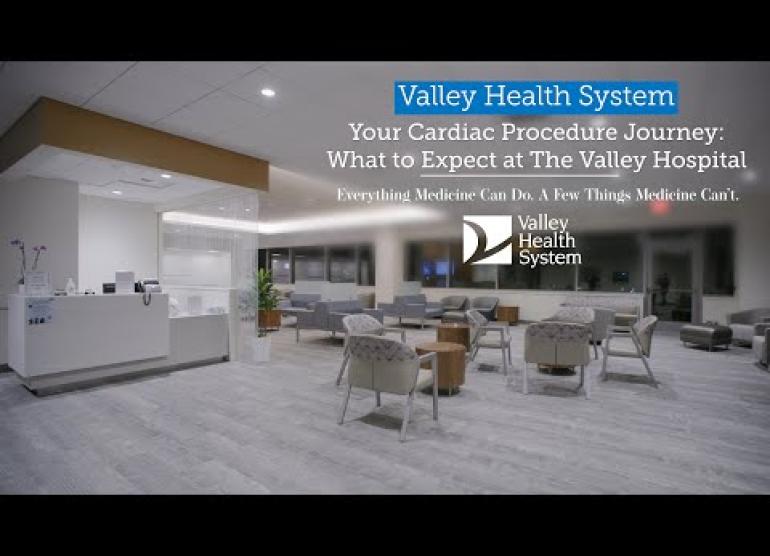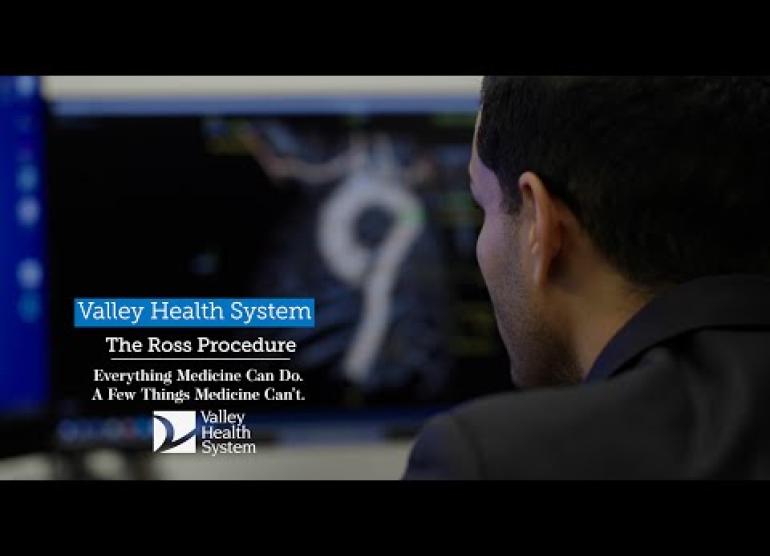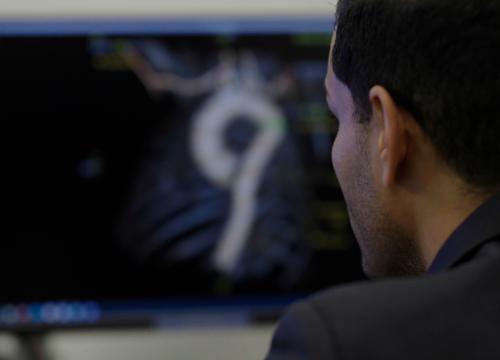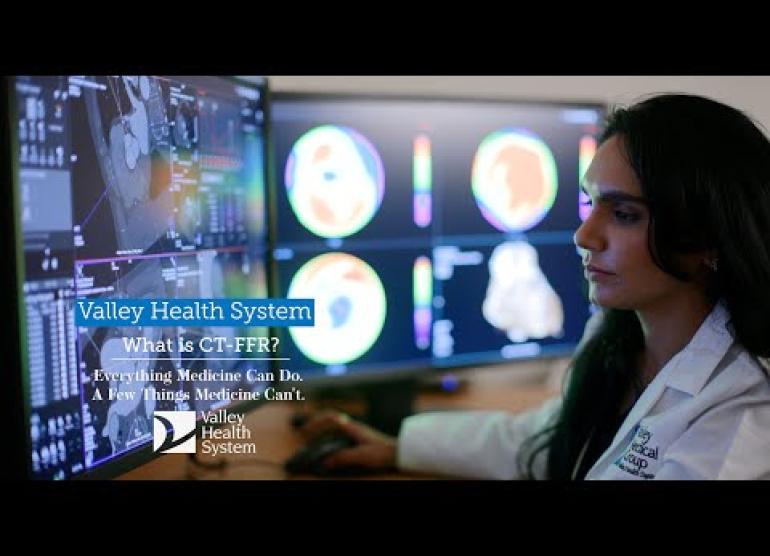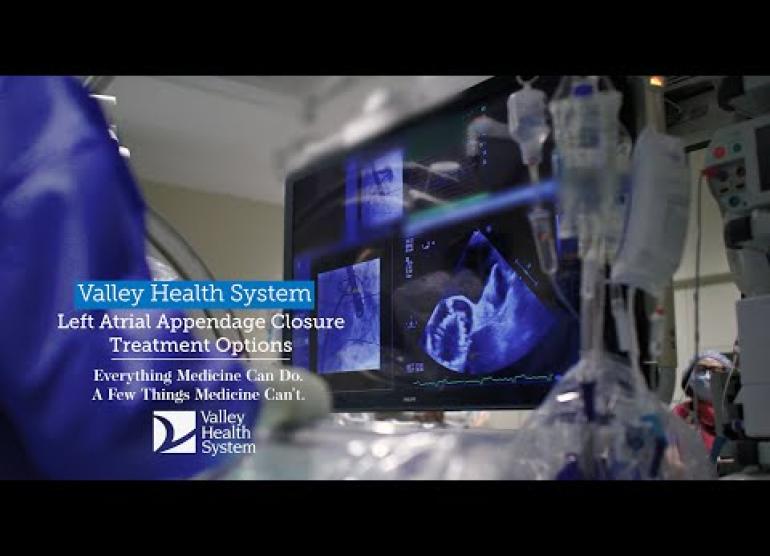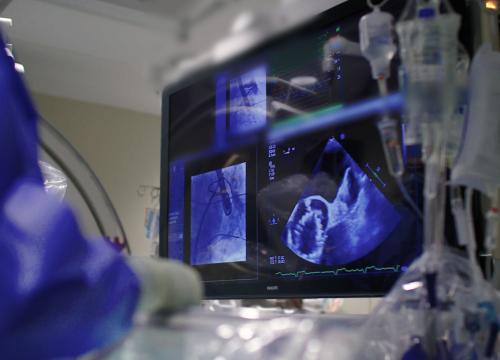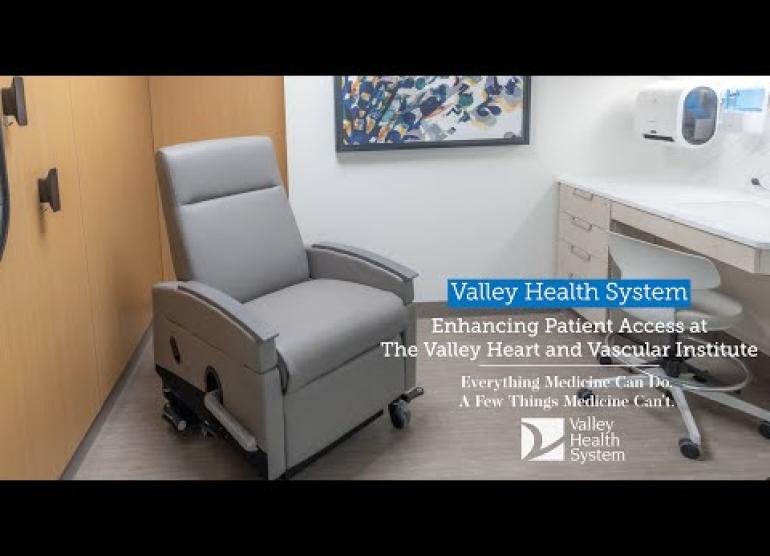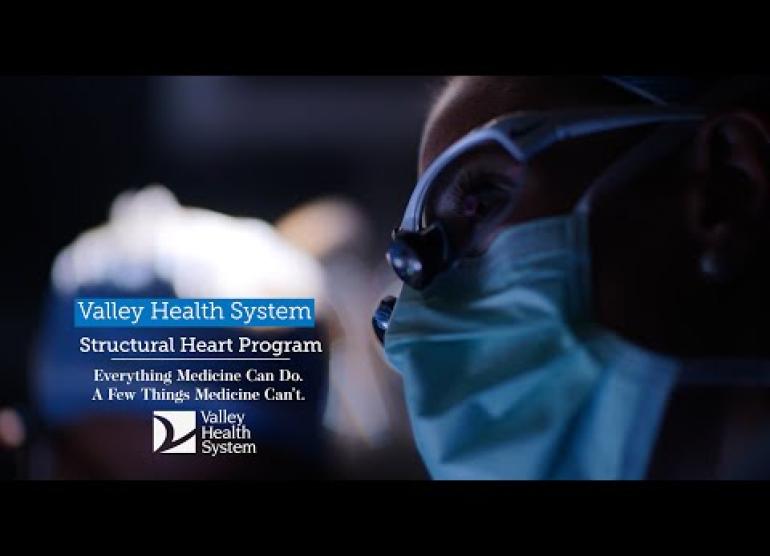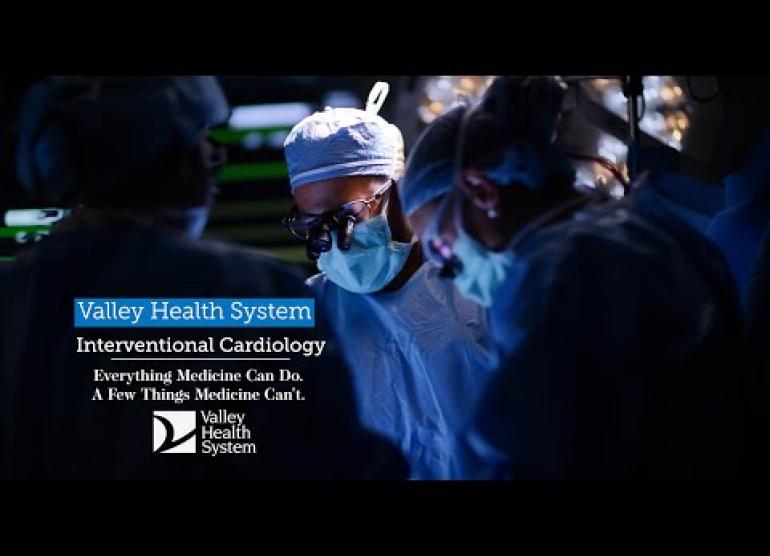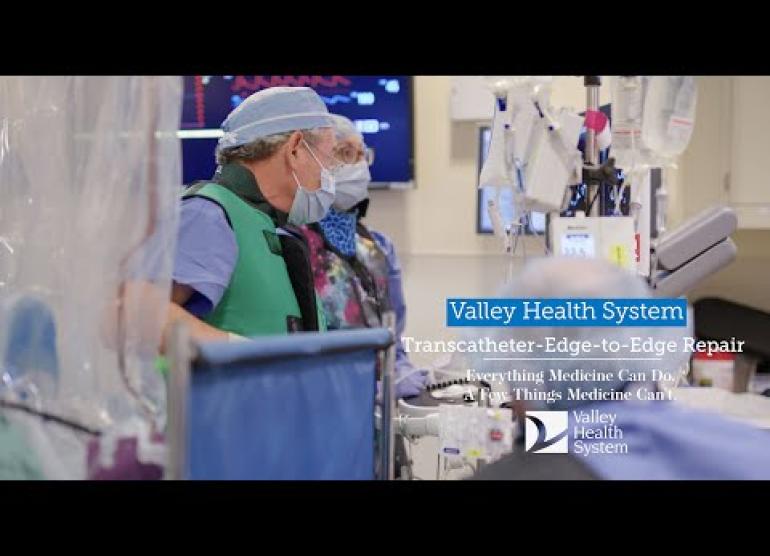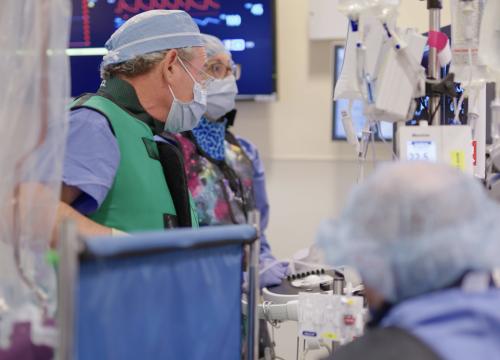Syncope is the medical term for fainting. It happens when you have a sudden loss of blood to the brain. Sometimes, syncope can be a sign of an underlying condition, such as an arrhythmia (irregular heart rhythm).
At Valley, our electrophysiology team specializes in uncovering the cause of syncope. When an irregular heart rhythm is to blame, we can treat the problem, so you have fewer symptoms like fainting.
Syncope Symptoms
Signs of syncope include:
- Fainting, or loss of consciousness
- Lightheadedness
- Fatigue and weakness
- Vision changes, such as blurred or tunnel vision
- Headaches
- Sweating
- Nausea
An electrophysiologist (a cardiologist who specializes in treating heart rhythm disorders) can help you determine the cause of these symptoms.
What Causes Syncope?
Many conditions, some of which are serious, can cause different types of syncope.
Types of syncope include:
- Vasovagal syncope (or neurocardiogenic syncope or reflex syncope): This occurs when part of your nervous system overreacts, causing your blood pressure and heart rate to drop.
- Cardiac syncope: Heart conditions like arrhythmias, heart failure or structural heart disease can affect blood flow to your brain and cause syncope.
- Carotid sinus syncope: Accidental pressure in a structure in the neck may cause this kind of fainting.
- Postural syncope (or orthostatic syncope): A drop in blood pressure after changing position, such as standing up too quickly, may cause you to faint.
- Neurologic syncope: Seizures, stroke and other neurologic conditions can trigger this type of fainting.
Sometimes, conditions such as diabetes, psychiatric disorders or extreme stress can also cause fainting. Valley’s electrophysiologists can find the cause of your syncope so you can get treated quickly.
Syncope Diagnosis at Valley
At Valley, you can feel confident that we will investigate every avenue to determine what’s causing your syncope. Our goal is to support you and treat you quickly and appropriately.
After we take a thorough history, we may recommend one or more of the following tests to determine the cause of your symptoms:
- Blood pressure measurements, which our team takes when you are lying down, sitting and standing
- Electrocardiogram (ECG), which evaluates the electrical activity in your heart
- Echocardiogram, which uses high-frequency sound waves (ultrasound) to show the structure of your heart
- Ambulatory monitoring, which may include a Holter monitor or an implantable loop recorder to record the electrical activity of your heart
- Electrophysiology (EP) study, which can help determine if an irregular heart rhythm is causing your syncope
- Exercise stress testing, which checks many aspects of your heart function during exercise
- Tilt table testing, which can recreate syncope symptoms that occur when you move from lying down to standing up
- Carotid sinus massage, which can trigger syncope by putting pressure on the carotid sinus artery in your neck
Syncope Treatment at Valley
Your syncope treatment plan may include one or more options based on your overall health and your specific needs. These include:
- Lifestyle modifications
- Medications
- Procedures
- Cardiac device therapy
Lifestyle Modifications
If your fainting is not heart-related, lifestyle changes may help reduce your risk for fainting. We may recommend that you:
- Avoid standing for long periods
- Drink more fluids
- Adjust your medications
- Avoid situations that cause you to faint
- Wear compression socks to improve your circulation
Medications
If your syncope is caused by an arrhythmia, your electrophysiologist may recommend one or more antiarrhythmic drugs to manage your irregular heart rhythm. If your syncope is caused by another condition, Valley’s experts may recommend other medicines to reduce your symptoms.
Procedures
When medications do not control the arrhythmia causing your syncope, your electrophysiologist may recommend catheter ablation. This minimally invasive procedure uses hot or cold energy to interrupt pathways in your heart causing your irregular heart rhythm.
Cardiac Device Therapy
Your electrophysiologist may recommend cardiac device therapy if your irregular heart rhythm requires ongoing monitoring and control to prevent syncope. Devices include:
- A pacemaker to treat syncope caused by a slow heartbeat. This device uses low-energy electrical pulses to help restore a normal heart rate and reduce symptoms like fainting.
- An implantable cardioverter defibrillator (ICD) to monitor your heart and deliver a lifesaving “shock” if it detects a dangerous heart rhythm.
Why Choose Valley for Syncope Care?
- Experienced diagnostic team: Our electrophysiologists work collaboratively with other specialists at Valley to understand the cause of your fainting. We aim to give you an accurate diagnosis and the right treatment to help you feel better faster.
- Local leaders in arrhythmia care: If your syncope is caused by an arrhythmia, you don’t need to travel far to find internationally recognized specialists. Through Valley’s Snyder Center for Comprehensive Atrial Fibrillation, our expert team offers many innovative ways to treat irregular heart rhythms.
- Expertise in ablation: If our electrophysiologists recommend a catheter ablation to treat an arrhythmia that makes you faint, you’re in good hands. Our team is skilled at performing complex ablations using a collaborative approach where two electrophysiologists work side by side.








